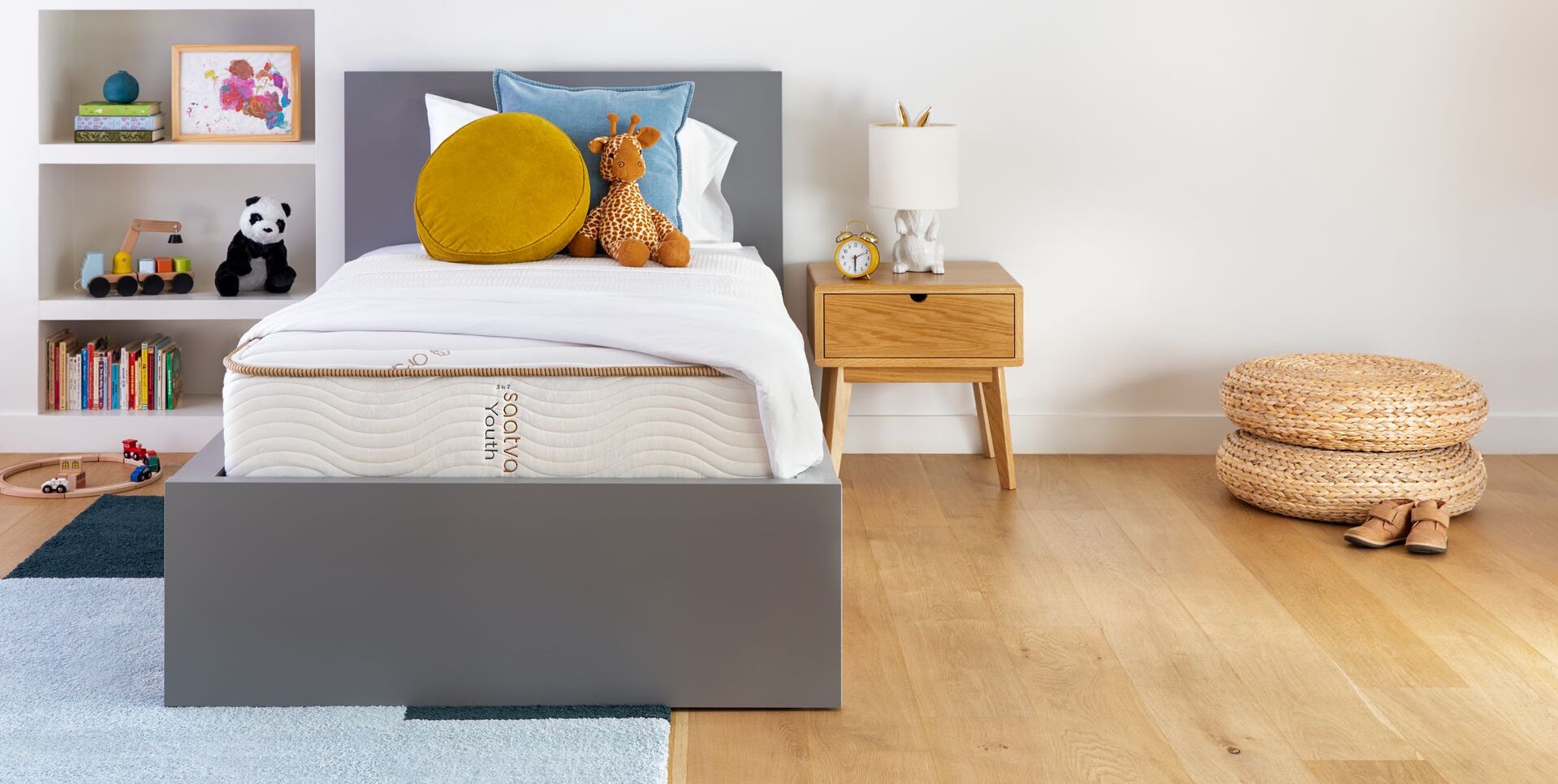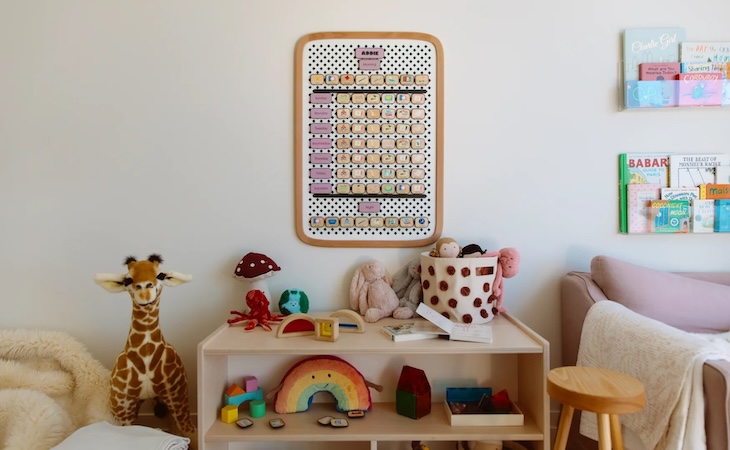If your family’s sleep habits have been out of whack since the COVID-19 pandemic began, you’re not alone. Per the Centers for Disease Control and Prevention, the stress brought on by an infectious disease outbreak can lead to changes in sleep patterns, difficulty sleeping, and worsening of mental health conditions.
As a single mom, I can tell you first-hand that getting a good night’s sleep has been a real challenge for me these last seven months. There were many times I’d wake up in the middle of the night with worry and then struggle to get back to sleep. (Thankfully, my daughter’s sleep has remained mostly stable, with a few nights here and there of tossing and turning due to anxiety.)
Now that kids across the country are back in school—whether that’s virtually or in-person or a mix of both—and you’re juggling work priorities while overseeing their education, it’s more important than ever to get back into a good sleep routine. That’s because sleep is key to ensuring you perform your best on the job, and it’s also a must when it comes to a child’s growth and development.
Tips for a good night’s sleep during a pandemic
The good news is, you can get your family back to peaceful slumber with the following advice from experts, as well as a few tips I’ve found helpful for myself.
Meditate to calm anxiety
The other night, I woke up from a deep slumber and couldn’t fall back asleep. I started to count the hours/minutes/seconds until the alarm would go off in the morning, panicking that I’d never get back to sleep. Then I decided to stop worrying and do something about it: I pulled out my Calm app and did a five-minute deep-sleep meditation that helped me drift right off.
In addition to those occasional middle-of-the-night guided meditations, I try to meditate every day for five to 15 minutes. It’s made a huge difference in my sleep, anxiety levels, confidence, and happiness. Science supports this: Research shows meditation can help ease insomnia, which is often caused by stress.
Exercise regularly—and get your kids involved
I work out virtually about three or four times a week, plus I do one very small group session in person. It gives structure to my days, teaches me discipline, helps me stay fit, and provides me with a social outlet. Plus, studies show exercise can improve sleep.
Lynelle Schneeberg, PsyD, fellow of the American Academy of Sleep Medicine and author of Become Your Child’s Sleep Coach: The Bedtime Doctor’s 5-Step Guide, Ages 3-10, notes that physical activity is also important for kids. Here, she shares some ideas for helping your little ones get some energy out so they can sleep better at night:
- Have your kids do a relay race up and down the stairs a few times before you give them a meal or snack.
- Throw a dance party or put on a kids’ yoga video. There are many free kids’ workouts on YouTube.
- Take a family bike ride around the block. This is what I like to do with my daughter, as well as taking her for a daily walk when weather permits.
- Own a mini-trampoline? Move it into a corner of the playroom so your kids have easy access.
Encourage your child to sleep independently
Your child may be extra-anxious at this time—and perhaps they’re making lots of extra requests right before bed, even though their bedtime routine should be over.
Schneeberg says it’s best to support your kids without allowing them to rely on you to fall asleep. “It’s important to think through the type and amount of help you offer because kids who can fall asleep independently after a comforting bedtime routine of a reasonable length tend to be better sleepers than kids who cannot,” she says.
Instead of having your child rely on you as a so-called “sleep crutch,” try leaving out a book for them to read, which they can look at until they get drowsy. You can also make sure they have a favorite teddy bear or special blanket around to snuggle. This will help them settle themselves to sleep at night more independently and without so much of your help.
Limit screen time before bed
Reading the news right before hitting the sack can set you up for a night of restlessness—plus, the blue light from your phone screen can also make it harder to fall asleep. For me, I realized that checking my emails—both work and personal—before bed was causing me a lot of stress and anxiety, so I stopped doing that at night.
That’s why Haley Neidich, licensed clinical social worker, recommends putting your phone, tablet, and computer down at least an hour before bed. (This is also a healthy habit to encourage any teens in your life to do.) Powering down your screens will help your mind decompress and prepare you for sleep.
Give the bedrooms in your home a makeover
I love this tip from Neidich: She suggests collaborating with your child on a fall bedroom makeover to shift the mood in their space and reset the button on bad habits.
“Remove any distractions that have cluttered their space, change to fresh bedding if possible, and be intentional together about prioritizing the creation of a soothing place for them to rest,” recommends Neidich.
Do the same thing for your bedroom too. “Clean out the work-from-home clutter and start fresh for the fall,” says Neidich. (Need help organizing the clutter? Try these tips from a KonMari expert.)
Stick to a consistent bedtime routine
No matter what bedtime routine you and your family choose, Neidich says, the most important thing is to stay consistent and include your children in creating that routine.
“Pick a routine that works for your family and then stick to it,” she says. “Consistency is more important for children than getting the routine itself perfect.”
Invite your kids to be part of creating their new routine, suggests Neidich. “Perhaps they are interested in learning to meditate together or having more quiet time to color before their bath,” she says. “This is a great chance to provide them with agency to express their desires around what they need to relax.”
For more ways to calm the stress you’re experiencing right now—and get your sleep back on track—read our guide to managing nighttime anxiety.





